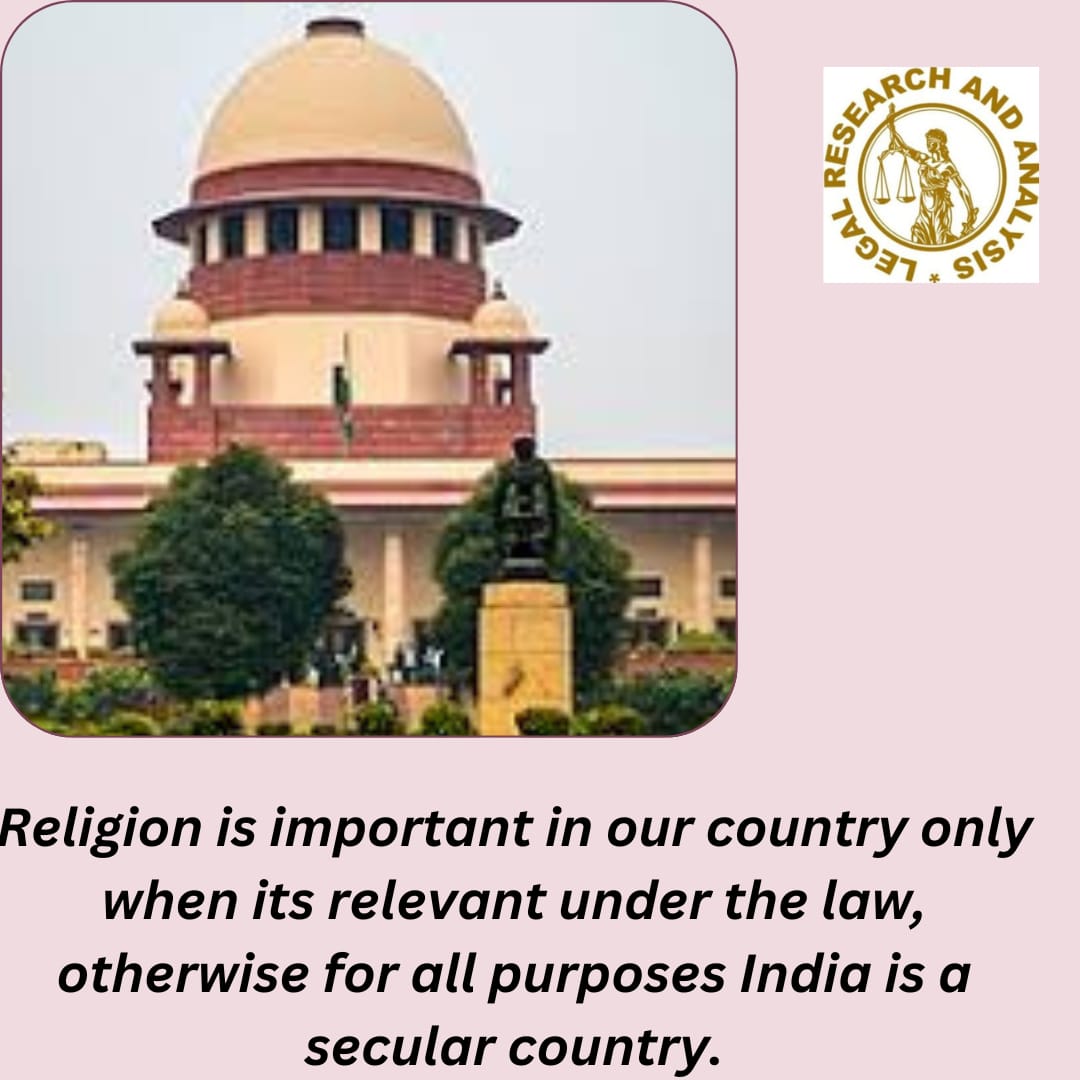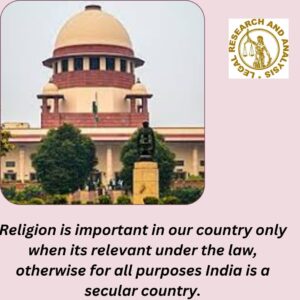
Religion is important in our country only when its relevant under the law, otherwise for all purposes India is a secular country.

The secular state is a concept born from secularity. It means the state or a country is officially neutral in matters of religion. To be clear, it does not mean irreligious. A secular state is where its people can follow their perspective religion, but the country does not officially support or oppose any religion. It is an environment where people can live together irrespective of their caste, religion and culture. the Division Bench of Justice KM Joseph and Justice Hrishikesh Roy said The Constitution of India envisages India as a secular nation and fraternity ensuring the dignity of the individual and the unity and integrity of the country is one of the guiding principles enshrined in the Preamble. The fraternity cannot take place unless different members of a community of religions or castes are capable of living in harmony. India is a Secular state because The word secular was incorporated in the Preamble of our constitution by the 42nd amendment of 1976. It means there is no official religion of the state freedom to profess, practice and propagate any religion Article 25 of our constitution provides people with the freedom to profess, practice and propagate any religion. People are allowed to practice their religion and carry religious symbols unless it harms the unity and sovereignty of the country Freedom in attending religious instructions in educational institutions People of India are free to celebrate their festivals equally.
Our constitution provides the right to follow the practice or promote any religion. But, at the same time, the state can intervene and protect our fundamental rights if it deems it necessary. Being home to many religions, India is a Secular state and a model to other nations, spreading unity among different cultures. India is also the largest full-fledged secular democracy. In this article, we understood Secularity, Secularism, What is a secular state and India as a Secular State.
In the West, if any religious institution gives any direction to a community or a woman, then the government and the courts cannot interfere in that matter. Whereas in India, the state and the courts can intervene on issues like the entry of women into temples and mosques. Significantly Indian secularism has simultaneously focused on intra-religious and inter-religious supremacy. It opposes the oppression of Dalits and women within Hinduism and discrimination against women within Indian Muslims or Christians and the threats that the majority community can pose to the rights of minority religious communities which makes it different from the concept of Western secularism.







